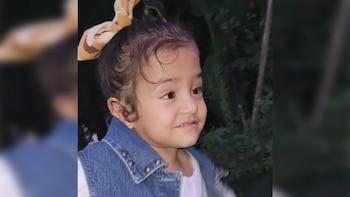
(ATR) Cities bidding for the Olympics – as well as those dreaming of a bid – hear how Vancouver and London make the most of their legacies from the Games at the 2012 Lausanne Summit in Switzerland.
About 70 delegates are attending this year’s event, the fourth organized under the banner of the World Union of Olympic Cities. The WUOV was established in 2004 by the cities of Lausanne and Athens to foster dialogue and exchange between cities which have hosted the Olympics or are future hosts. Cities bidding for the Games are also included in the membership.
This year’s summit attracted 14 cities with bids – or preparing to bid. From the 2020 race, Istanbul and Tokyo both sent representatives.
Three potential bidders for the 2022 Winter Games are in Lausanne – St. Moritz/Davos, Barcelona and Oslo. Amsterdam, interested in a bid for 2028, is here as is Busan, South Korea’s second-biggest city, looking to bring the Summer Olympics back to the country "one day".
Sochi Mayor Anatoly Pakhomov was the top official from an upcoming Olympic Games. Neither Rio de Janeiro (which hosted the 2011 meeting) or 2018 Winter Games city PyeongChang sent delegates to Lausanne for this meeting.
The opening session of the two-day meeting featured success stories from Vancouver and recipes for success from IOC Olympic Games Executive Director Gilbert Felli.
Felli told delegates that planning is key to implementing legacy from an Olympics but that is the job of stakeholders like government to fulfill the potential for benefit, not the organizing committee which must focus on delivering the Games.
Still, legacy is a must to deliver, Felli said.
"All Games must ultimately benefit people."
He also noted the need for communication to make clear the legacy a Games will bring. He said that failure to do so in Montreal led the Olympic Stadium to become the most notorious symbol of the 1976 Games, not other benefits which did accrue to the city.
In his presentation, George Duncan, CEO of the Richmond Olympic Oval said that extensive community involvement from the beginning of the project has made the oval a money-maker for the city, a facility that is in daily use in the Vancouver suburb. Duncan says the oval is generating $1 million in annual profit.
Bruce Dewar, CEO of Lift Philanthropy Partners, the new name for what was 2010 Legacies Now, says planning has made the difference in leveraging the long-term impact of the Vancouver Winter Games.
He says more than 12,500 programs have arisen out of the push for legacy from Vancouver. Dewar says these programs have led 100,000 young people to try new sports.
London 2012 education chief Nick Fuller briefed the meeting on Get Set, the schools program put in place by London 2012. By the time of the London Games, Fuller says 85 percent of schools in the U.K. were registered for the curriculum. The International Inspiration program also under Fuller’s wing is said to have hit a target of reaching 12 million students in 20 nations.
The summit closes Tuesday with presentations on the sport for all activities and a legacy report from Squaw Valley 1960. It will be made by Hawley MacLean, member of the Reno Tahoe Winter Games Coalition seeking the return of the Games to the region. Atlanta, Lake Placid, Los Angeles and St. Louis are the other U.S. cities at the Lausanne Summit.
Written and reported in Lausanne by Ed Hula
For general comments or questions, click here
20 Years at #1:
Últimas Noticias
Sinner-Alcaraz, the duel that came to succeed the three phenomenons
Table tennis: Brazil’s Bruna Costa Alexandre will be Olympic and Paralympic in Paris 2024

Rugby 7s: the best player of 2023 would only play the medal match in Paris

Rhonex Kipruto, owner of the world record for the 10000 meters on the road, was suspended for six years

Katie Ledecky spoke about doping Chinese swimmers: “It’s difficult to go to Paris knowing that we’re going to compete with some of these athletes”




